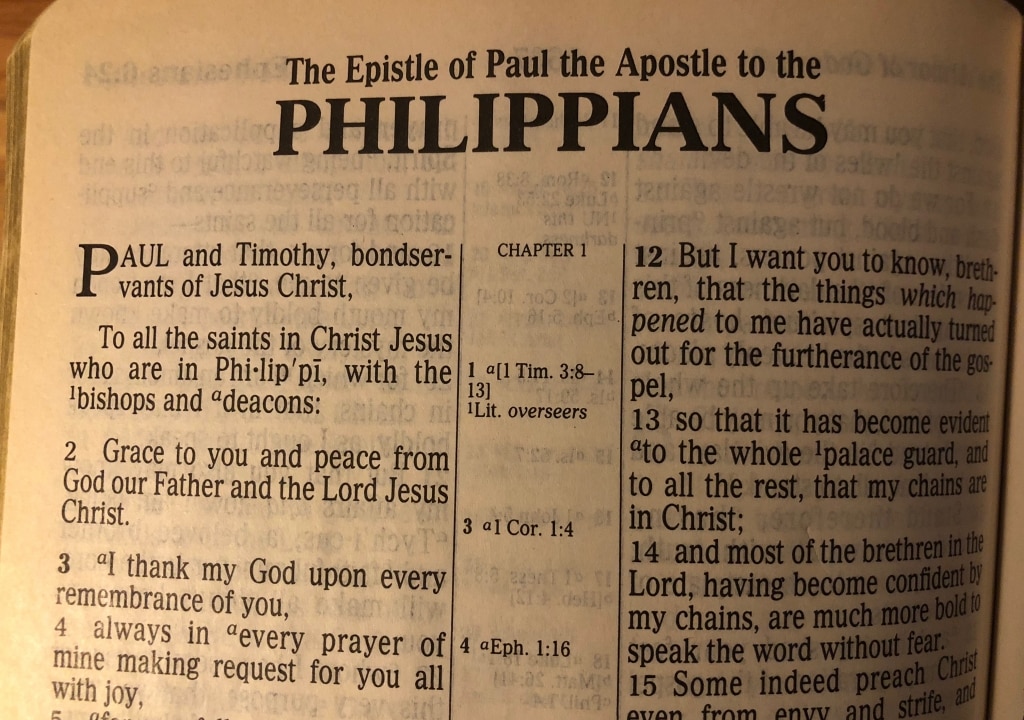No church of the early Christian era was more in tune with the theology and spirit of the Apostle Paul than were the Philippians. His letter to them is unlike any other. It is a letter to friends and brothers in a “fellowship in the gospel” (Phil. 1:5, 7) that was shared by no other church. No other epistle, with the exception of Philemon, reveals the heart of the Apostle as does this one.
Philip, the father of Alexander the great, founded the city of Philippi in 368 B.C. It was a strategic site, which commanded the road from Europe to Asia. The city was a Roman colony (Acts 16:12), settled by veteran Roman soldiers. As a colony of Rome, its inhabitants were given Roman citizenship, spoke Latin, and observed Roman customs (Acts 16:20–21). Paul reminds these Philippian believers that they now hold a new citizenship from Heaven (Phil. 3:20).
The story of Paul’s first visit to Philippi is recorded in Acts 16, one of the key chapters of the book. After receiving the call from Macedonia (Acts 16:9–10), Paul and his company travelled to Philippi. It was at this point that Luke joined Paul’s team, as is evident from the “we” and “us” found in Acts 16:10. The story of his first visit is critical to the Gospel message for two reasons. First, the key figures in the chapter are Lydia, a wealthy merchant woman, a demon-possessed slave girl, and a Roman soldier and citizen, who was the jailer. Lydia was from the Asian city of Thyatira (Acts 16:14), the demon-possessed slave girl was a Greek, and the jailer was, of course, a Roman. The whole of the world was represented in these three, and in Paul the Jew, who brought to them the Good News of Jesus Christ.
The second reason this story is so vital is because of the jailer’s question, “What must I do to be saved?” (Acts16:30), and Paul’s answer, a model of the simplicity of the Gospel, “Believe on the Lord Jesus Christ, and you will be saved” (Acts 16:31). Those who seek to add anything to this simple statement of Paul are guilty of betraying the message of the great Apostle (Gal. 1:6–9).
Although the book is filled with the theme of rejoicing, we ought not to see that it is set against a background of persecution and suffering. Paul is writing from a Roman prison (house arrest, Acts 28:16, 30), in chains for his ministry (Phil. 1:7, 13). He is writing to a church that, from the beginning, shared in his persecution (Phil. 1:27–30). Not only this, but no other church was so dedicated to supporting Paul in his missionary journeys (Phil. 4:14–16; 2 Cor. 11:9). In this letter, the themes of thanksgiving (Phil. 1:3–8), suffering (Phil. 1:7, 12, 16, 29–30), warning (Phil. 3:2–3, 18–19), and rejoicing are combined (Phil. 1:4, 25; 2:17–18; 4:4).
In the book of Philippians, we have a snapshot of the turbulence and challenges of the ancient Roman world, and of a valiant and victorious assembly of early believers who opened the door of Europe to the Gospel message (Acts 16:8–10; 2 Cor. 2:12–14). Most of us in the western world who have believed are indebted to these courageous, first-century believers.
Philippians Outline
- Chapter One—the Single Mind (v. 27)
- Chapter Two—the Sacrificial Mind (v. 5)
- Chapter Three—the Sanctified Mind (v. 15)
- Chapter Four—the Steadfast Mind (vv. 1–2)


